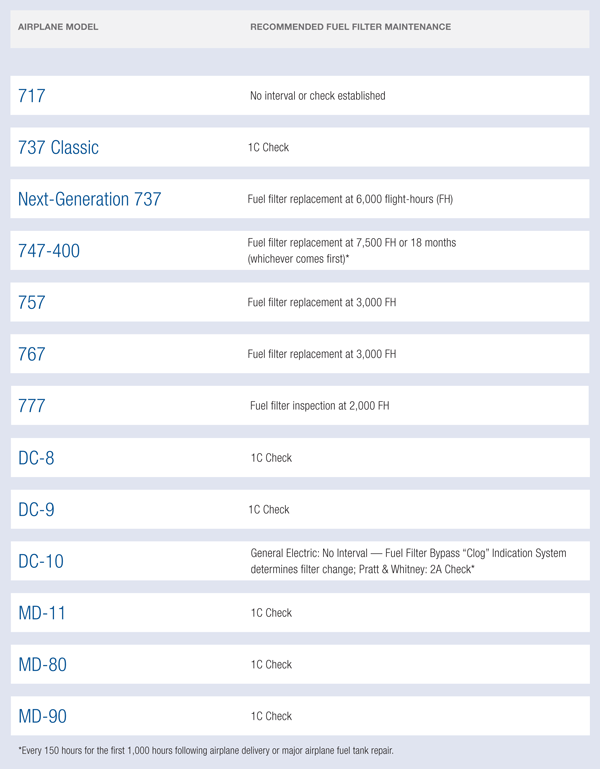
IMPROVED METHODS ON THE HORIZON
For many airlines, the current fuel filtration methods at airports are not adequate to prevent airplane fuel filter contamination for the replacement interval recommended by engine manufacturers. But new technologies are emerging that will provide more accurate assessments of the amount of particulates and water in uplifted fuel.
For example, in-line optical devices may be able to alert operators to potential problems with fuel contamination before the fuel is pumped into the airplane. These devices measure the index of refraction: if the fuel contains particulates or water, the index of refraction changes and the system will notify the airport ground crew to take action. It is anticipated that optical devices could detect particulates a few microns in size while fuel is flowing to the airplane. It may take several more years before this new equipment is installed at the majority of airports.
RECOMMENDATIONS
Because many instances of fuel contamination can be traced to uplifted fuel, itís important that airlines ensure that their fuel suppliers are following proper fuel handling requirements by performing periodic audits of their facilities. The fuel supply should contain less than 0.5 milligrams of particulates per liter.
If an operator is experiencing a large number of air turnbacks or rejected takeoffs because of fuel filter bypass indications, it may want to consider replacing fuel filters more frequently than the recommended scheduled maintenance interval (see fig. 5). Many airlines are replacing fuel filters at 2,000 hours or fewer, compared to the published scheduled maintenance intervals of up to 7,500 hours. If an airline suddenly has filter contamination problems on many airplanes, it is a sign of poor filtration at an airport facility and the airline should investigate the fuel suppliers.
BOEING
FUEL FILTER
MAINTENANCE
RECOMMENDATIONS
Figure 5
These are the official Boeing recommendations for scheduled maintenance for fuel filters, as cited in the relevant Maintenance Planning Data manual.

SUMMARY
Itís important that airlines work with their fuel suppliers to ensure that local fuel handling procedures are being followed. If the source of the contamination cannot be found, the only alternative is to replace the fuel filters more frequently.
For more information, please contact Michael Jones at michael.d.jones@boeing.com.

